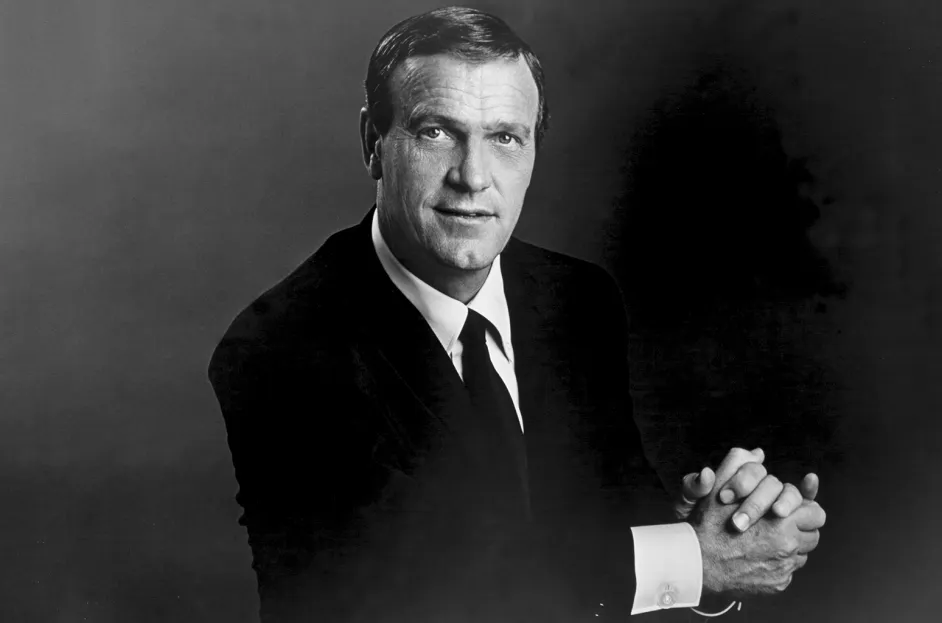
A Melancholic Farewell Wrapped in Tenderness
In the realm of country music, where heartfelt emotions and poignant storytelling intertwine, few songs capture the bittersweet essence of love and parting quite like “Then You Can Tell Me Goodbye” by the legendary Eddy Arnold. Released as a single from his 1968 album “Walkin’ in Love Land,” this classic piece encapsulates a blend of affection and sorrow that resonates deeply with listeners, particularly those who have experienced the tender fragility of love.
Upon its release, “Then You Can Tell Me Goodbye” found its way into the hearts of many, reaching a respectable position on the music charts. It climbed to number 1 on the Billboard Hot Country Singles chart in early 1968, a testament to Eddy Arnold’s enduring appeal and the universal themes woven into the song’s fabric. The success of this track further cemented Arnold’s status as one of country music’s most cherished voices, known for his ability to convey profound emotion with sincerity and grace.
The story behind “Then You Can Tell Me Goodbye” is as captivating as the song itself. Written by John D. Loudermilk, a songwriter renowned for his ability to craft lyrics that are both simple and profound, the song was initially recorded by artists across various genres before finding its perfect match in Eddy Arnold. Loudermilk’s composition traverses beyond mere lyrics and melody; it is an exploration of love’s complexities, capturing the delicate balance between holding on and letting go.
Eddy Arnold’s rendition is steeped in nostalgia, evoking memories of tender moments shared under starlit skies or during quiet afternoons. His voice, rich and soothing, carries an emotional depth that invites listeners to reflect on their own experiences with love. As he croons each line, there is a sense of vulnerability that permeates the air—a reminder that love, while beautiful, is also fragile and transient.
The song’s lyrics paint a vivid picture of a lover’s plea for one last moment together before facing an inevitable goodbye. It speaks to anyone who has clung to fleeting moments, savoring every kiss and embrace before reluctantly parting ways. There is a universal truth embedded within these words—a recognition that love often involves moments of both joy and sorrow.
For many older listeners, “Then You Can Tell Me Goodbye” serves as a poignant reminder of past loves and the passage of time. Its gentle melody and heartfelt lyrics evoke memories of dances shared in dimly lit rooms or whispered promises exchanged beneath the moonlight. The song encapsulates the essence of nostalgia, inviting listeners to reminisce about their own journeys through love’s labyrinthine paths.
In this modern age, where music often races forward with relentless energy, Eddy Arnold’s timeless ballad offers a moment of pause—a chance to reflect on what it means to truly love someone. It is an invitation to cherish every fleeting moment, to hold on just a little longer before saying goodbye.
Ultimately, “Then You Can Tell Me Goodbye” is more than just a song; it is a testament to Eddy Arnold’s artistry and his ability to touch hearts across generations. Through its tender melodies and evocative lyrics, it continues to resonate with those who have loved deeply and lost profoundly. As we listen to this beloved classic, we are reminded that goodbyes are never easy but are sometimes necessary—a gentle nudge to hold onto our precious memories until we meet again.
In an ever-changing world where music constantly evolves, Eddy Arnold’s “Then You Can Tell Me Goodbye” remains a timeless reminder of the enduring power of love—its joys, its sorrows, and its ability to leave an indelible mark on our hearts.
